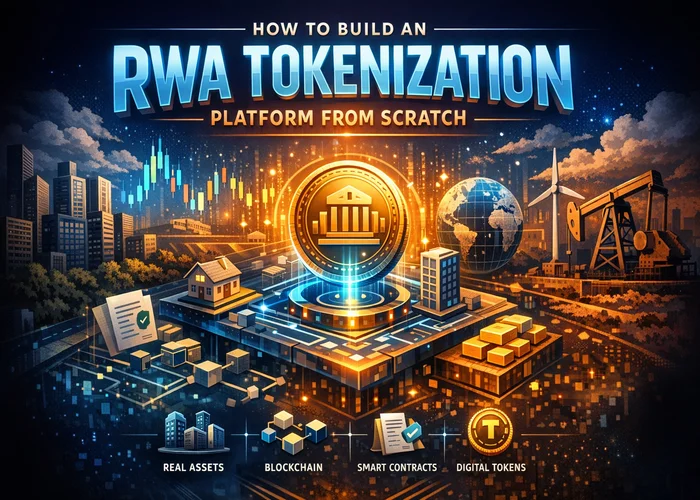Blockchain has become a disruptive technology that leads many of the industries, like healthcare. Blockchain in healthcare is aimed at providing utmost security, privacy, healthcare data security, and data transparency.
Originally intended as the fundamental technology for cryptocurrencies, blockchain is now revolutionizing healthcare by providing a distributed and safe way to handle private medical information. Examining how blockchain guarantees security, supports openness, and changes the way healthcare data is handled, this paper explores the great influence blockchain has on healthcare.
There are many advantages of integrating blockchain in the healthcare industry and we will discuss them in detail.
1. Security and Privacy Concerns in Healthcare
Healthcare system software is not immune to data breaches, illegal access to patient records, and possible exploitation of private medical information. There comes the blockchain for medical records, which helps to prevent patient confidentiality; traditional centralized systems expose major threats from hacking, data tampering, and illegal sharing.
Using a distributed and tamper-resistant architecture, blockchain solves security concerns. Data is kept across several nodes in a blockchain network, and each block of information links to the one before it by cryptographic hashes. This guarantees that any effort at manipulation is instantly observable and makes it quite difficult for illegal organizations to change data.
2. Immutable Patient Records
Unchangeable patient records created by blockchain technology are one of its main benefits of blockchain for medical records. Information entered into the blockchain becomes part of an unchangeable, safe ledger once more. This maintains patient data integrity, therefore avoiding illegal changes and guaranteeing that medical professionals have access to correct and trustworthy information.
Maintaining continuity of treatment depends especially on immutable patient records. Medical personnel may rely on the accuracy of the data kept on the blockchain for anything from diagnosis results to treatment plans to medical histories, therefore guiding more informed and successful decisions.
3. Interoperability and Data Sharing
Interoperability is one of the major challenges in all healthcare sectors. The smooth flow of data between several healthcare systems can be attained by seamless interoperability. By offering a consistent and safe forum for data exchange, blockchain technology in healthcare could help to break up these silos.The patient’s complete medical history kept on the blockchain is accessible to healthcare professionals, labs, insurance companies, and patient permission allowed access.
Self-executing agreements buried in the blockchain, smart contracts, can guarantee that data is transferred just according to pre-defined rules and automate the permission procedure. This improves the general efficiency of healthcare operations in addition to simplifying data exchange.
4. Drug Traceability and Supply Chain Management
Beyond patient information, blockchain is absolutely vital for maintaining the integrity of pharmaceutical supply chains and drug traceability. Supply chain management Counterfeit drugs seriously compromise patient safety, and the opaque supply chain makes it difficult to establish the source of drugs. From manufacture to distribution, blockchain lets a clear and verifiable supply chain possible.
Blockchain recording of every stage of the medicine supply chain allows stakeholders to confirm pharmaceutical validity. In addition to shielding patients from fake medications, this enables quick and focused recalls should a product have flaws or safety issues.
5. Streamlining Claims Processing and Billing
Many healthcare software are bound to have inefficiencies, mistakes, and conflicts in the administrative facets of healthcare, including claims processing and billing. By building an open, auditable transaction ledger, blockchain helps to simplify these procedures. By automating claim adjudication, smart contracts help to guarantee correct and timely processing of payments.
Blockchain-driven solutions can result in major cost reductions for insurance companies and healthcare providers by lowering administrative overhead and minimizing error likelihood. This thus supports a more sustainable and effective healthcare ecosystem.
6. Enhancing Data Integrity and Patient Trust
7. Empowering Patients with Ownership of Their Data
8. Encouraging Research and Development
9. Mitigating Healthcare Fraud
10. Overcoming Regulatory Challenges
11. Global Health Data Exchange
Blockchain could help to enable effective and safe worldwide health data flow. Access to a patient’s whole medical history can be absolutely vital in times of emergencies or cross-border medical travel. The distributed and interoperable character of blockchain guarantees quick and accurate information flow in crucial circumstances by allowing smooth data interchange amongst healthcare providers all around.
All things considered, including blockchain in healthcare transforms the whole healthcare ecosystem rather than only solving current security issues. Blockchain shows itself as a complete solution for creating a strong, patient-centric, technologically advanced healthcare infrastructure by encouraging data integrity, empowering patients, accelerating research, mitigating fraud, overcoming regulatory challenges, and enabling worldwide data exchange.
Potential Challenges of Integrating Blockchain in Healthcare
Technical challenges
Scalability
Interoperability Standards
Legal and Ethical Considerations
Continuous Evolution and Research
Integration with Emerging Technologies
How can we help you?
Leading blockchain development company Shamla Tech leads this change and provides specific solutions meant for the medical sector. Their knowledge spans blockchain integration, artificial intelligence-driven healthcare solutions, and the creation of safe, interoperable platforms improving patient care and data management. Using Shamla Tech’s skills can help healthcare companies solve important issues, including healthcare data security, interoperability, and patient involvement, thereby improving the transparency and efficiency of the healthcare system.
By means of strategic alliances and thorough awareness of both technology and healthcare environments, Shamla Tech enables the flawless acceptance of blockchain solutions. Their dedication to excellence and creativity guarantees that medical professionals can navigate the complexity of technological integration, therefore improving operational efficiency and patient results. Working with Shamla Tech will help healthcare companies be on the forefront of technological innovation, ready to satisfy changing needs of the sector.
Conclusion
Blockchain’s integration into healthcare is a complex path that addresses urgent security issues and opens the path for a time defined by openness, efficiency, and patient empowerment. Blockchain becomes a major player determining a strong and patient-centric healthcare ecosystem as the healthcare sector negotiates technology obstacles, creates interoperability rules, and handles ethical and regulatory issues.
Determining the course of blockchain’s influence on the future of healthcare depends critically on the continuous cooperation of technological experts, healthcare providers, legislators, and researchers. Combining a dedication to innovation and multidisciplinary cooperation with ongoing research and development in blockchain applications guarantees that the transforming power of blockchain is fully used, so redefining the healthcare scene for enhanced patient outcomes and system-wide efficiency.








